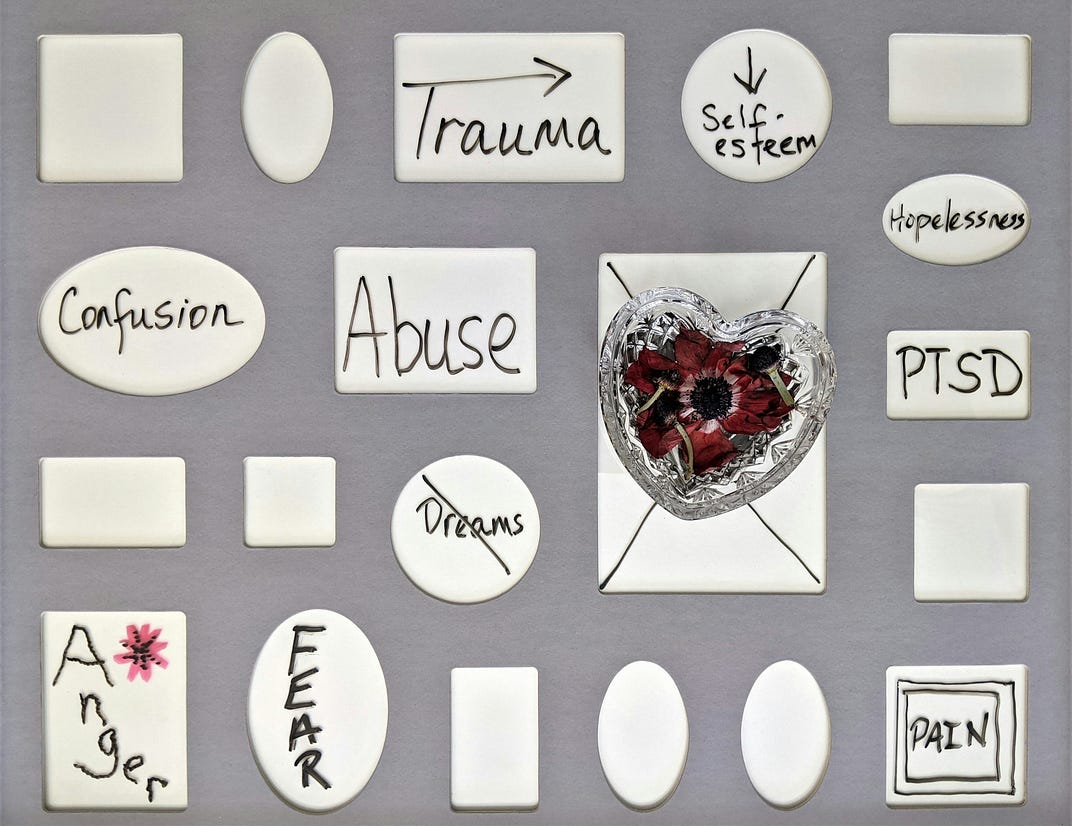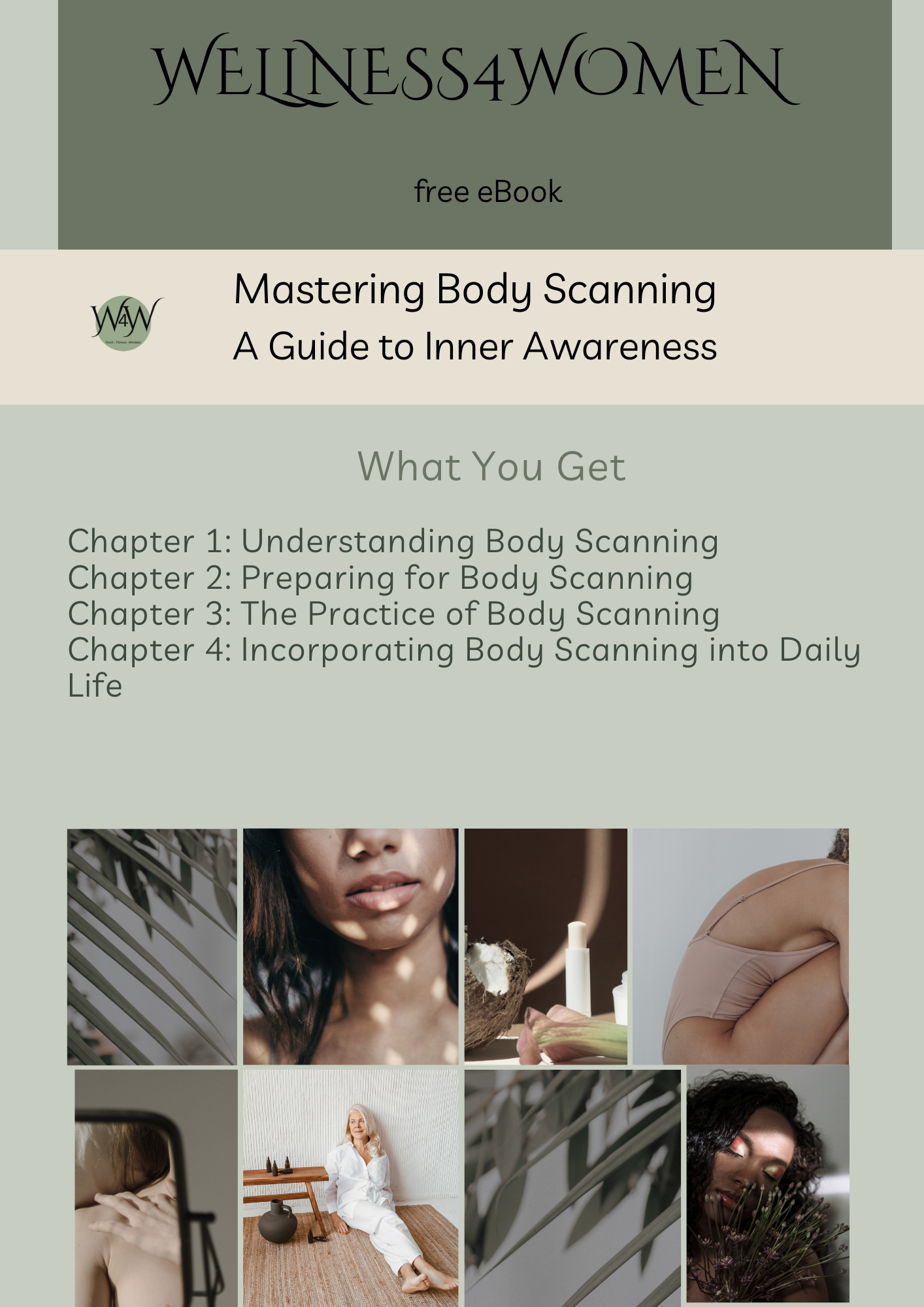How to Detect Abusive Behaviours
Wellness4Women is about a holistic approach to well-being. That includes being aware of not only what we do to ourselves but also what happens ‘to us’. Emotional and Psychological Abuse is serious and often is the first step to physical violence. I have experienced abusive relationships, and I want to pass some insight along to you.
Emotional and psychological abuse, often subtle and insidious, can inflict profound harm on individuals. Understanding how to find this form of abuse is crucial for providing support and intervention.
I did not detect that abuse was happening to me till years after my abuser left. Looking back, I could see how devastating the situation was. He convinced me that our lives were ‘normal, acceptable’, but my life was anything but normal.
I developed an Emotional and Psychological Abuse Signs and Effects guide to explore the signs, effects, and contexts of emotional and psychological abuse. This guide will help you see the Red Flags.
I offer insight into detecting and addressing these harmful behaviours.

What is Emotional and Psychological Abuse?
Emotional abuse involves the consistent use of words and actions to control, belittle, isolate, or frighten someone. Psychological abuse is similar but focuses more on mental manipulation, undermining an individual’s sense of reality, self-worth, and autonomy.
Both forms of abuse are often intertwined and can occur in various relationships, including romantic partnerships, family dynamics, friendships, and workplace environments.
Signs of Emotional and Psychological Abuse.
1. Verbal Abuse
Verbal abuse is a primary indicator of emotional and psychological maltreatment and often underpins most forms of abuse. This can include:
#Insults and Name-Calling: Persistent derogatory comments intended to demean and belittle the victim.
#Yelling and Screaming: Raising one’s voice to intimidate or scare the victim.
#Threats: Promising harm or retribution to instil fear and compliance.
#Blame-Shifting: Constantly blaming the victim for problems or issues, making them feel responsible for the abuser’s behaviour.
2. Manipulation and Control
Abusers often use manipulation tactics to exert control over their victims. This can manifest as:
#Gaslighting: Making the victim doubt their memories, feelings, and sanity by denying reality or retelling events in a skewed manner.
#Isolation: Cutting off the victim’s access to friends, family, and support networks to increase dependency on the abuser.
#Jealousy and Possessiveness: Constantly accusing the victim of infidelity or disloyalty without cause, leading to increased control over their actions and interactions.
#Monitoring and Stalking: Excessive monitoring of the victim’s whereabouts, communications, and activities.
3. Emotional Blackmail
Emotional blackmail involves using guilt, fear, and obligation to control someone. Tactics include:
#Guilt Trips: Making the victim feel guilty for asserting their needs or desires. (I spent every day feeling guilty)
#Silent Treatment: Withdrawing affection or communication to punish and control the victim. (This is painful)
#Overprotection: Pretending to act out of concern while actually restricting the victim’s freedom and autonomy. (I interpreted this as caring and loving me until I realised I was trapped)
Effects of Emotional and Psychological Abuse.
The impact of emotional and psychological abuse is profound and can affect every aspect of a victim’s life. Common effects include:
1. Mental Health Issues
Victims of emotional and psychological abuse often suffer from various mental health problems, such as:
#Depression and Anxiety: Persistent feelings of sadness, hopelessness, and nervousness.
#Low Self-Esteem: Erosion of self-worth and confidence due to constant belittlement and criticism.
#Post-Traumatic Stress Disorder (PTSD): Symptoms like flashbacks, nightmares, and severe anxiety triggered by the traumatic experiences.
(experienced all of the above)
2. Physical Health Problems
Chronic stress from emotional abuse can lead to physical health issues, including:
-Chronic Pain: Conditions like headaches, back pain, and gastrointestinal problems. I suffered chronic constipation and gut issues due to stress.
#Sleep Disorders: Insomnia or excessive sleep caused by anxiety and stress.
#Substance Abuse: Increased reliance on drugs or alcohol to cope with emotional pain.
3. Social Withdrawal and Isolation
Victims often withdraw from social interactions due to shame, fear, or being isolated by the abuser. This can lead to:
#Loneliness: Feeling isolated and unsupported.
#Loss of Relationships: Damage to friendships and family connections due to the abuser’s manipulative tactics.
(all of the above for me)
Contexts of Emotional and Psychological Abuse.
The following is what we meet, and we do not read the red flags. It takes a lot of work to ‘unlearn’ such a response to abusive behaviour. And some of us can also become an abuser without realising the gravity of it. So, it’s paramount to understand and watch out for the fact that emotional and psychological abuse can occur in various settings, each with unique characteristics:
1. Intimate Relationships
In romantic relationships, abuse often starts subtly and escalates over time. Most abusers may initially appear loving and attentive, gradually introducing controlling behaviours. Be aware that Warning signs (red flags) include excessive jealousy, monitoring, and verbal degradation.
2. Family Dynamics
In family settings, emotional abuse can be perpetrated by parents, siblings, or extended family members. Common behaviours include favouritism, scapegoating, and unrealistic expectations.
This can severely affect a child’s development and self-esteem.
3. Workplace Environments
Workplace abuse can manifest as bullying, harassment, or toxic management practices. Signs include unfair criticism, colleague isolation, and unrealistic workloads designed to cause failure. This environment can lead to significant stress and burnout.
4. Friendships and Social Circles
Even friendships can become abusive. Manipulative friends may use guilt, peer pressure, or exclusion to control and dominate others. This can create a toxic social environment, leading to emotional distress.
How to Recognise and Address Emotional and Psychological Abuse.
Finding emotional and psychological abuse requires vigilance and empathy. I know this is hard work and difficult to face, but it is necessary for your protection and recovery. You need to take back control of your life, and this is the way to start doing that- Key steps to take include:
1. Educate Yourself and Others
Understanding the signs and effects of abuse is the first step toward recognition. Education helps individuals and communities become more aware and responsive to abuse.
2. Trust Your Feelings and Intuition
Victims often feel that something is wrong before they can name specific behaviours. It is crucial to trust these feelings and seek advice from trusted friends, family, or professionals.
3. Document the Abuse
Keeping a record of abusive incidents can help victims clarify their experiences and provide evidence if they decide to look for legal or professional help.
4. Seek Professional Help
Therapists, counsellors, and support groups can provide vital help. Professional intervention can help victims develop coping strategies, rebuild self-esteem, and plan safe exit strategies if necessary.
5. Set up Boundaries
Setting and keeping clear boundaries is essential for protecting oneself from further harm. This may involve limiting contact with the abuser or cutting ties completely.
6. Build a Support Network
Connecting with supportive friends, family, or support groups can provide emotional strength and practical aid. A strong support network is invaluable in the recovery process.
Finally,
Emotional and psychological abuse, though often less visible than physical abuse, can have equally devastating effects.
Recognising the signs and understanding the dynamics of abuse are critical for intervention and support.
By educating ourselves and others, trusting our instincts, and seeking professional help, we can find and address emotional and psychological abuse effectively, paving the way for healing and recovery.
I extend an exclusive invitation to join the Wellness4Women community by subscribing to https://wellness4women.blog. As a token of my gratitude for your interest, you’ll unlock a complimentary e-book on body scanning, a resource available only to our valued community members.
As your dedicated wellness consultant and coach, I am deeply committed to science-based holistic health. Your well-being is my utmost priority, and I am here to guide you on your journey to wellness.
I offer A FREE initial consultation for those seeking to enhance their overall health and wellbeing- contact me for details. However- If you’re facing serious, immediate health concerns, I urge you to consult your healthcare provider for personalised guidance.
Let’s embark on your journey to well-being together. Remember, live life with intention because your wellness matters. Until next time, take care and stay well. ?
Affiliate Link: Got a YouTube channel? To Get More Views and Subscribers, click this link to get your free TubeBuddy today. https://www.Tubebuddy.com/pricing?a=Wellness4Women
In the comments section, I would love for you to share your stories and comments about your health, fitness, and wellness strategies with this community.
Do you Enjoy Reading Self-help Books?
Buy my books are available at AMAZON. (ALSO AVAILABLE SOON ON MY WEBSITE)
?Psalm 23 Unwrapped: Hope in Difficult Times.
You will also find many of my articles and videos on all Platforms-
https://gravatar.com/paularoseparish
https://paularoseparish54798.medium.com
https://www.youtube.com/channel/UCvdQ4NPTNfXSnwd3pimPh0g
www.linkedin.com/in/paula-rose-parish-6320a6181
Spirituality
https://www.youtube.com/channel/UCIHzAbvL5Wdjlh4Q57XHEDA
https://www.almostcatholic.blog
Follow
Pinterest?— https://www.pinterest.co.uk/proseparish/
Medium- www.medium.com/@paularoseparish_54798
Facebook- https://www.facebook.com/paula.roseparish.5/
Instagram: https://www.instagram.com/paularoseparish2020/?hl=en
LINKEDIN: https://www.linkedin.com/in/paula-rose-parish-6320a6181/
If you wish to connect with me, please contact me at paularose@wellness4women.blog.
Copyright © 2024. Paula Rose Parish. All Rights Reserved.
Wellness4Women https://wellness4women.blog
#fitnessmotivation #healthwellbeing #wellness #womenshealth #holistichealth



